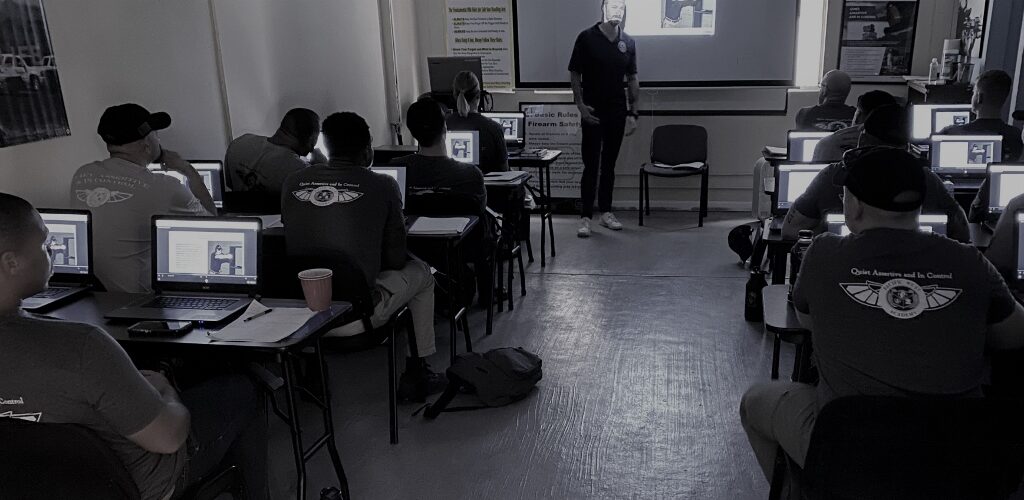

Customer Service in the Executive Protection World
Customer Service in the Executive Protection World
The first value that comes to mind for most people when thinking about how an Executive Protection (EP) agent should act is “tough,” or whatever other synonym you can put in its place. That seems to be the biggest misconception about protection work, that the job is centered around being stern and looking mean.
I like to think of why I am there in the first place. The most obvious reason is that the client needs protection, but the subliminal reason is that your client wants to feel comfortable. It is easy to understand the security needs of a client, transportation security, site security, etc. But how do you make your client feel safe AND comfortable. This is where the customer service side of Executive Protection comes into play, and frankly, this will be utilized more on a minute-to-minute basis with a client than any other thing you do.
Here are few things items that come into play as a protective agent that have more to do with customer service than protection:
Pocket Packs
Mask – Carry an extra mask in your jacket or shirt pocket. These days, a lot of institutions will require patrons to wear a mask. Having an extra one in case you client needs it can be extremely beneficial.
Hand Sanitizer – This goes along with the mask. For certain clients, having hand sanitizer available may put them at ease when it comes to germs and cleanliness.
Gum – At times, a client may need to freshen their breath before a meeting or social interaction and having a pack of gum available is a small thing that can make your client’s life easier.
Petty Cash – Always keep cash on you. You never know when you or your client will run into a situation that requires cash (purchases, valet, tips etc). $100 is a nice even number to keep, plenty of room for debate here, but at the very least keep $36 on you: a 20, 10, 5 and 1 dollar bills.
Car Comforts
The vehicle can carry many other items in it to make the ride easier for your client. The above-mentioned items should be in the vehicle as well as the following items:
Water – We all know it; we just need to double check. Drinking is a necessity and carrying water in your vehicle is a must. Depending on your client, you may want to lean towards higher end water in a glass container.
Snacks – This one is more for the car, and you must know a little about the client, but having a snack available for your client is good practice. Until you know your client’s specific preferences, stick to basic generally accepted snacks. If you know your client has specific allergies, choose appropriate snacks.
Phone chargers – Keep phone charging cables for the most prominent types of phones. Your client will feel relieved when their phone is about to die, and you have the charger in the vehicle. Make sure to use the auxiliary power outlets (cigarette lighter outlets), this will ensure that if your client takes a phone call it will not go into the cars stereo system for you and anyone else in the car to hear.
Music – Having some light background music inside of a vehicle can ease tensions and make for a more relaxed atmosphere. Sometimes, too much silence can be awkward for both yourself and the client. Unless you know your client’s personal preference in music, stick to “vanilla” generally accepted music, based off your client’s age (latest hits, oldies, classic rock etc).
Climate control – Have a good understanding of the climate controls in the vehicle. Keeping the car at room temperature can make the environment more comfortable. Also, don’t be afraid to ask you client if they would like the temperature to be adjusted.
Go Getters
You may have to be a runner for the client on occasion. The more you do while maintaining security, the more useful you are and the more times you will be hired. This may mean running and getting a coffee at times. It also may mean a stop at McDonald’s on the way to picking up your client because they texted ahead and said they would like some McNuggets. A client asking for something specific on a trip is common, and publicists and managers may forget sometimes. You may end up feeling the brunt of that mistake unless you can correct it beforehand. Be a go getter. Do what you can. Maintain your duties as a protection agent. That means conducting a realistic threat assessment and understanding when it is ok to step away and get something for the client. Understand the fact that although you are hired for security, sometimes you are not needed.
Politeness
Finally, lets talk about our disposition. It seems to be a common misconception that every security professional should be a stone faced professional with short, robotic answers for question. Our disposition is part of our customer service. We need to be good at protection while being personable at the same time. Be polite to your client, smile, and make sure to greet them professionally. Give them the feeling you are easy and comfortable to be around. You will still be in control of the security, but you will not make clients uneasy or frighten them. Being able to read your client’s disposition is important. If you client wants to engage in polite conversation, engage in polite conversation. If your client would like some quite and solitude, let them have it.
The movie Roadhouse with Patrick Swayze has a perfect quote for this. The main character, Dalton, tells the bouncers of a bar, “I want you to be nice, until its time to not be nice.” You will know when that time is. You must always be professional and courteous with the client, but when your client needs you to protect them, it will be time to act accordingly.
The Certified Executive Security Specialist program at Pacific West Academy covers all these themes.
